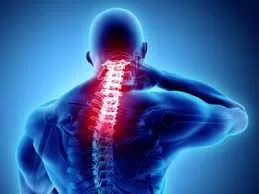Study Highlights Need for Person-Centered Chronic Pain Management to Address Psychological and Social Factors
Recent research has unveiled a complex interplay of socioeconomic, psychological, and social factors in the development of chronic musculoskeletal pain, challenging conventional approaches to pain management. The study, published in PLOS One and led by Michael Dunn from the University of Birmingham and St. George’s University Hospitals NHS Foundation Trust, underscores the necessity for a holistic, person-centered approach to chronic pain care.
Chronic musculoskeletal pain, defined as persistent pain lasting longer than three months after initial injury, affects a significant portion of the population globally, with approximately 43 percent of the UK population grappling with its impact. Despite its prevalence, effective management strategies remain elusive, with current approaches often focusing solely on physical rehabilitation at the site of injury.
However, the latest findings suggest that chronic pain is influenced by a myriad of factors beyond the physical injury itself. Socioeconomic status, fear of movement, smoking habits, and support network strength emerged as key determinants in the development of chronic pain post-injury. Notably, individuals from lower socioeconomic backgrounds were found to be twice as likely to develop chronic pain following an injury, shedding light on the disparities in pain outcomes across different demographics.
Lead author Michael Dunn explains, “The purpose of acute pain is to alter behavior to protect the body from harm, but chronic pain persists because of a sensitized nervous system that continues our experience of pain, even after the healing process has completed.” This insight underscores the need for a paradigm shift in pain management, one that acknowledges the multifaceted nature of chronic pain and integrates psychological and social interventions alongside physical rehabilitation.
The study’s recommendations advocate for a more person-centered approach to chronic pain care, emphasizing broader considerations of biological, psychosocial, and social well-being. By addressing the individual experiences and circumstances that contribute to chronic pain, healthcare interventions can better meet the diverse needs of patients and improve treatment outcomes.
Moreover, the research highlights the potential discriminatory implications of current healthcare approaches, which may inadvertently favor individuals from higher socioeconomic backgrounds who are less likely to experience the psychological and social factors associated with chronic pain development. By recognizing and addressing these disparities, healthcare systems can strive for greater equity in pain management and ensure that all individuals receive comprehensive and inclusive care.
As chronic musculoskeletal pain continues to pose a significant burden on individuals and healthcare systems worldwide, the imperative for a holistic and person-centered approach to pain management has never been more pressing. By embracing the insights from this research, healthcare practitioners can pave the way for more effective and equitable chronic pain care for all.












